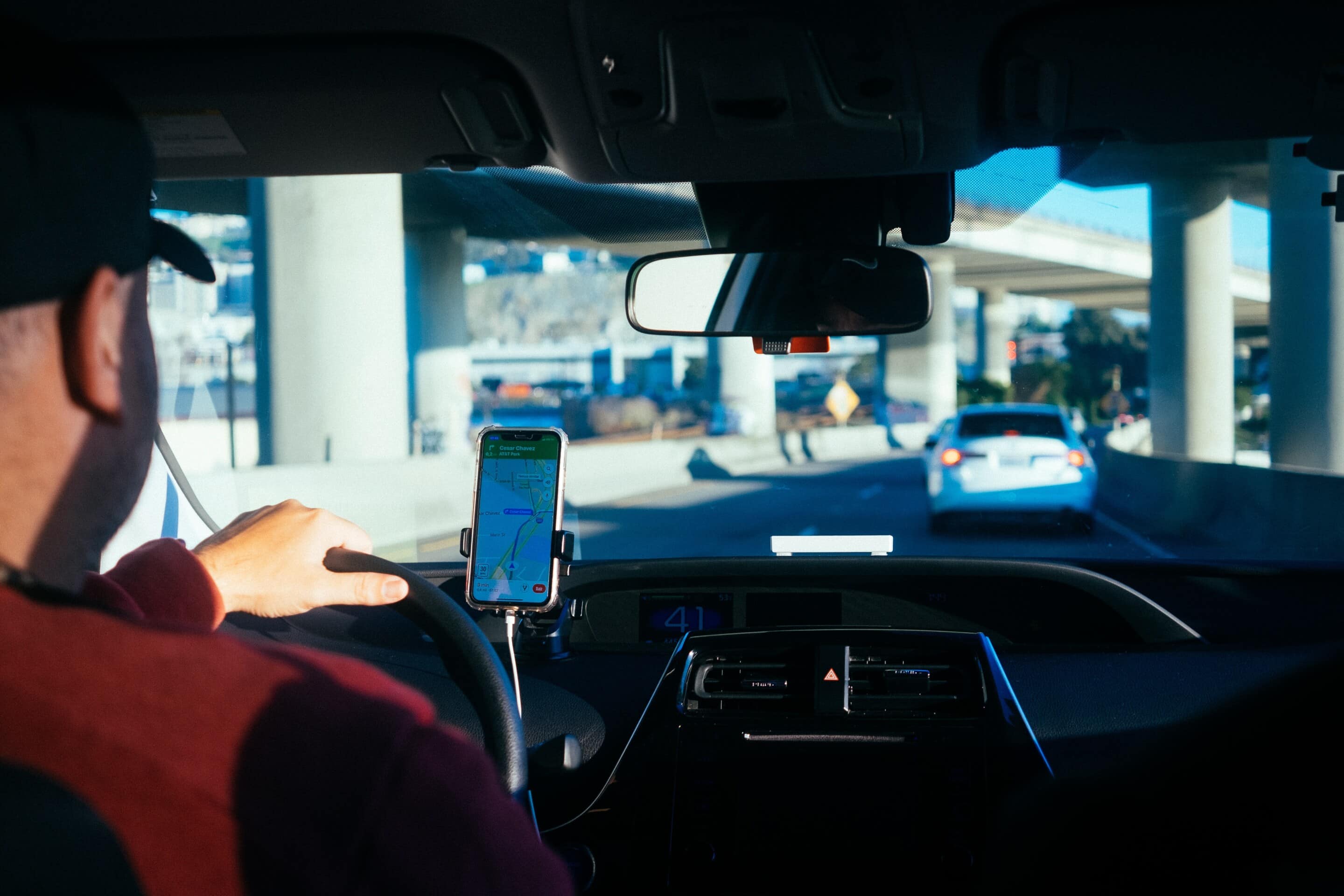
by jesper | Oct 24, 2023 | Blog
The future of the gig economy is a fascinating topic with endless possibilities. In our latest podcast episode, we explore this subject in-depth, touching on technological advancements, unique earning potentials, and controversies surrounding privacy.
One intriguing development we discuss is the proxypic app. This innovative technology has the potential to revolutionize customer interactions, especially in areas like Grand Rapids. However, with such systems, privacy concerns arise. We delve into the recent controversy surrounding an Uber Eats Bot video shared with the Los Angeles Police Department (LAPD), highlighting the increasing prevalence of license plate readers and their potential privacy implications.
Further, we spotlight Ridy, an inventive player in the gig economy. Ridy has introduced the concept of a car vending machine, a novel idea with promising earnings potential. We discuss the technology behind RIDI, the earnings potential of $150 per month, and why investing in this concept might be a smart move. The app makes use of technology to simplify the process and increase the convenience of selling snacks in cars.
Additionally, we explore Uber’s Diamond Program, weighing its pros and cons. While the program offers perks like free Costco membership and gas benefits, we ponder whether the rewards are truly worthwhile.
Lighter moments in our podcast include laughing over a hilarious delivery driver TikTok video and debating the risks of clocking many miles in a new car. We also discuss some less glamorous aspects of long-distance driving, like pet waste disposal and urine collection. This brings us to a character named ‘Piss Jug Man,’ who provides some interesting solutions to these problems.
Finally, we deep dive into delivery apps, scooters, and the challenges faced in the fast-paced, multi-app gig economy. We discuss potential solutions, such as a 10 p.m. scooter curfew in Grand Rapids, and the idea of earning extra money through sponsorship links. The gig economy is rapidly evolving, and we aim to keep our listeners informed and engaged with the latest trends and controversies.
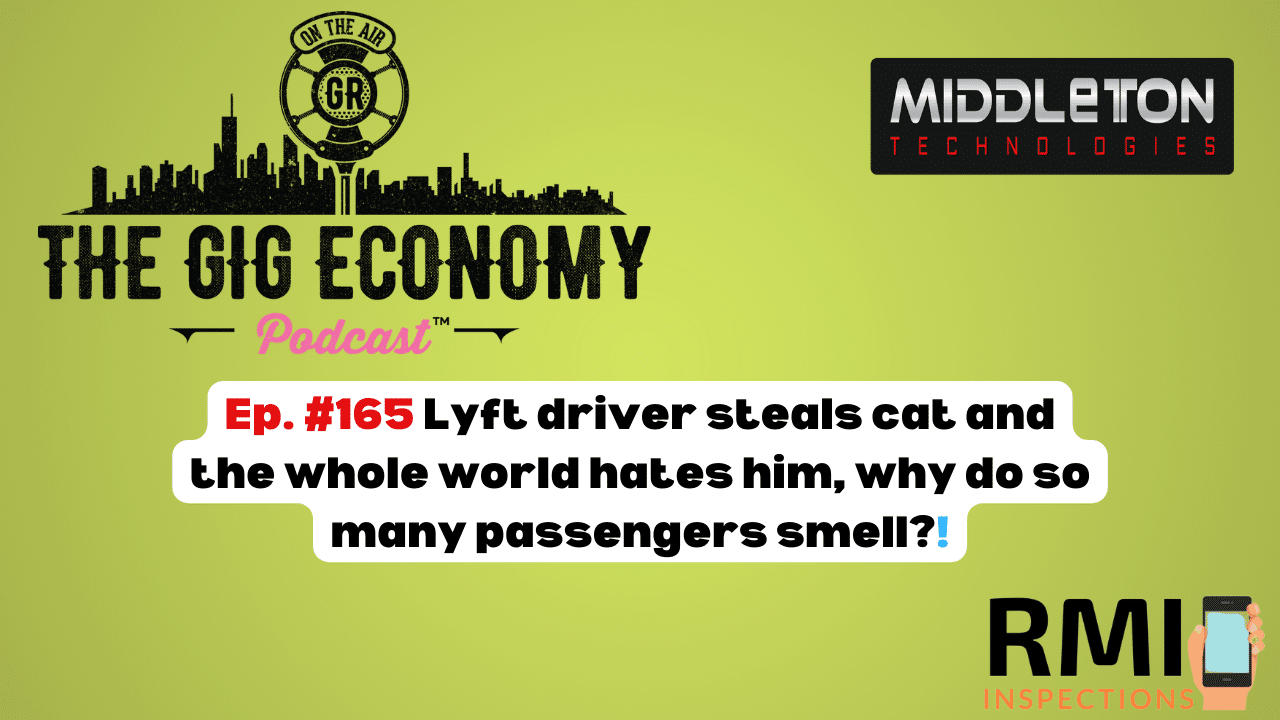
by jesper | Oct 10, 2023 | Blog
Welcome to another insightful episode of our podcast, where we take a deep dive into the fascinating world of the gig economy. This episode is a wild ride filled with hilarious and cringe-worthy tales from the road as rideshare drivers. From a passenger who reeked of petroleum and urine to those with questionable hygiene habits, we’ve seen it all and we’re sharing it all.
Our experience as rideshare drivers offers a unique perspective on the gig economy. We discuss the earning potential and the toll it can take on individuals. It’s not all fun and games, and it’s important for potential drivers to understand the realities of this line of work.
The episode also focuses on the new kid on the block in the ride-hailing service, InDrive. This platform sets itself apart with an interesting feature that allows passengers to negotiate their fares with the driver. We delve into its origins, impact, and what sets it apart from other ride-hailing services.
However, the gig economy is not without its dark side. We discuss the controversial deactivation of drivers on platforms like Uber Eats and Instacart. The challenges faced by drivers are real, and we’re not afraid to shed light on them. This episode provides an in-depth look at these issues, offering a balanced perspective on the gig economy.
The gig economy is a complex ecosystem, filled with unique challenges and opportunities. This episode aims to provide a comprehensive look at the gig economy, from the hilarious to the heart-rending, from the good to the bad, and from the money-making tips to the challenges. Whether you’re a seasoned gig worker, considering joining the gig economy, or simply curious about it, this episode offers a wealth of information and insights.
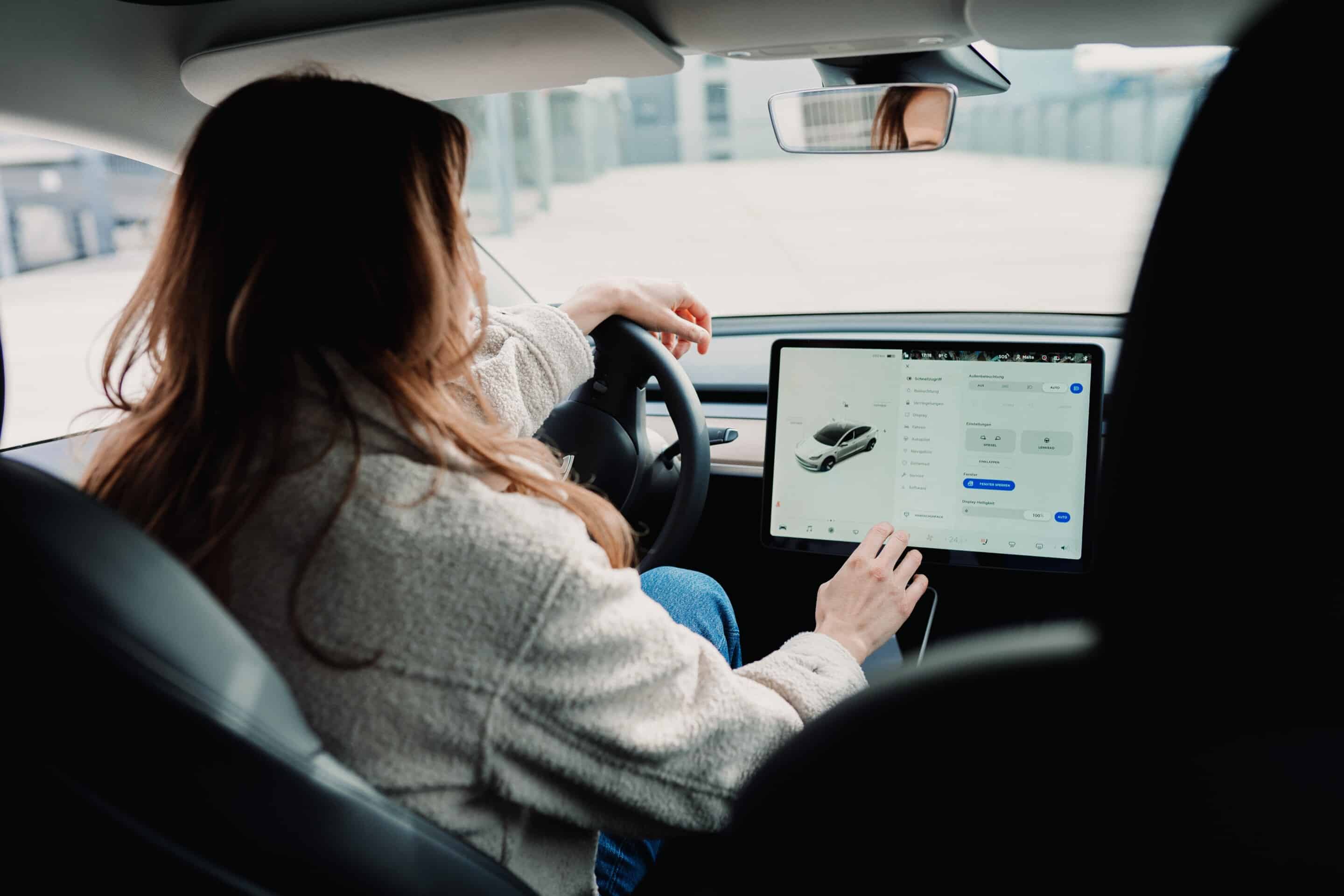
by jesper | Sep 18, 2023 | Blog
In this podcast episode, we delve into the fascinating and often complex world of the driving gig economy. As seasoned drivers, we provide firsthand insights into different driving options and how they impact our earnings. From exploring the concept of ‘utilized hours’ to dealing with one-star ratings, we provide an honest account of our experiences in the driving gig economy.
One of the main topics we discuss is the comparison between gas and electric cars for Uber drivers. With the rising concerns about climate change and the growing popularity of electric vehicles (EVs), many drivers are considering making the switch. We brought in three drivers – Nathan, Jeff, and Gabe – who share their experiences and earnings with both types of vehicles. Interestingly, while electric cars do significantly cut down on fuel costs, other factors such as higher purchase prices and charging times can offset these savings.
We also take a deep dive into the concept of ‘utilized hours’ – the time between when a driver accepts a ride and completes a trip. This is a critical metric in the driving gig economy as it directly impacts earnings. Based on the recent earnings call from the company, it appears that drivers can earn close to $36 per ‘utilized hour’, including tips and bonuses. However, actual earnings can vary greatly depending on factors such as the time of day, location, and individual driving habits.
The conversation then shifts towards Lyft’s new initiative – Woman Plus Connect. This feature is designed to give women and non-binary drivers more control over their driving experience. While this initiative is undoubtedly progressive, it raises questions about how Lyft will manage the data associated with it.
Apart from these driving-related topics, we also discuss our recent adventures with equipment upgrades and the creative process of naming a new show segment. We discuss the pros and cons of equipment wear and tear and the possible solutions. The debate on gas vs. electric cars also takes center stage, reflecting the ongoing shifts in the driving gig economy.
Join us on this journey through the driving gig economy. Share our triumphs, learn from our experiences, and become part of our community. We believe that through sharing and learning, we can all thrive in this fast-paced and ever-evolving gig economy.
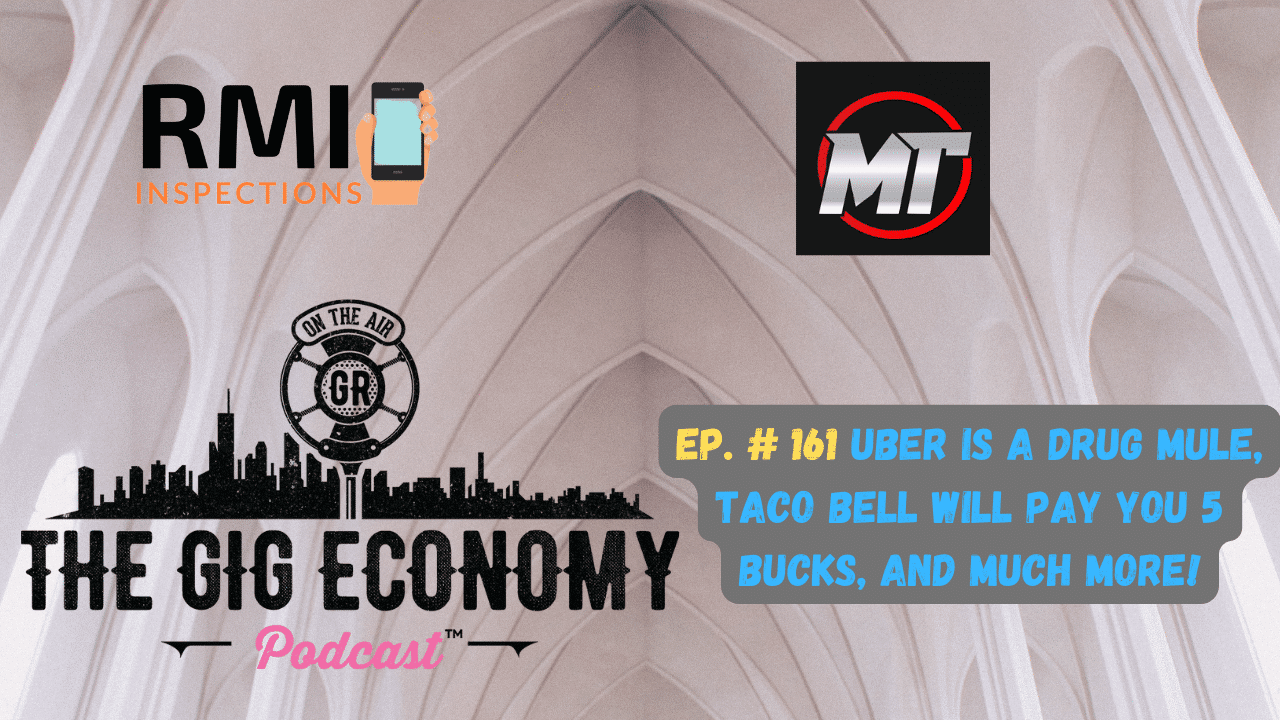
by jesper | Sep 11, 2023 | Blog
The gig economy has transformed the way we view work, and at the forefront of this shift are ride-sharing apps like Uber and Lyft. These platforms have not only changed the transportation landscape but have also introduced a myriad of complex issues and scenarios that were previously unheard of. In our latest podcast episode, we delve deep into these topics, unraveling the many layers of Uber, its practices, and its impact on society.
One of the most shocking revelations about Uber’s operations is its unwitting role as a drug mule. As we discuss in the episode, there have been instances where Uber deliveries have led to unexpected discoveries of drug trafficking. This raises questions about the safety and security of drivers.
But it’s not just about security; Uber’s algorithm and data analysis presents a fascinating look into the potential of a data-driven gig economy. Uber’s wealth of data can inform city planners and even be sold as data sets. We also explore the emerging market disruptor, Empower, which poses a potential threat to Uber and Lyft’s business model.
In addition to these revelations, we discuss the surprising benefits and drawbacks of pricing glitches in Uber. On one hand, these glitches can lead to unexpectedly cheap rides for customers. On the other, they raise questions about the fairness and reliability of Uber’s pricing algorithm.
The episode also delves into the contentious balance between driver rights and customer service in ride-sharing services. We discuss a controversial incident involving a Lyft driver refusing to switch off his Christian music for a Jewish rider. This incident sparked a debate on the driver’s rights and the delicate balance of providing customer service in ride-sharing services.
As we explore these topics, we also discuss safety measures for ride-sharing users and the importance of customizing your ride-sharing experience. We introduce apps like Middleton Tech, which lets you customize your ride-sharing experience, and discuss the potential of making significant earnings in just a few hours.
Lastly, we touch on the issue of restaurants raising their menu prices for delivery apps, which could lead to a drop in sales and reorder rates. We discuss the potential of DoorDash limiting the visibility or removing restaurants that continue to put up higher prices.
In the gig economy, every new revelation brings with it a host of questions and considerations. As we continue to navigate this evolving landscape, we invite you to join us in our journey, one episode at a time.
by jesper | Aug 21, 2023 | Blog
The gig economy has revolutionized the way we view and engage with jobs and services, providing an alternative means of income for many. From ride-sharing platforms like Uber and Lyft to delivery services like DoorDash, the gig economy has become a staple of modern life. But with the freedom and flexibility it offers, the gig economy also harbors hidden corners, intricate intricacies, and potential risks that are often overlooked.
One of the primary areas we delved into in our latest podcast episode was Uber. This ride-sharing giant has transformed urban transportation, but it’s not without its challenges. We discussed everything from selecting the best ride options to navigating a bustling weekend as an Uber driver. We also shared a chilling tale of a 73-year-old retired nurse who found herself in the crossfire of a car theft while driving for Uber. This story underscored the importance of safety and security in the gig economy, a concern often overshadowed by its conveniences.
Safety issues are not exclusive to ride-sharing services. The gig economy also extends to delivery services, and we took a detour to explore this area. Specifically, we highlighted safety risks in India, where background checks are not as stringent, leading to potential risks for both customers and delivery personnel. This is a stark reminder that while technology has made services more accessible, it’s crucial for companies to prioritize safety measures to protect their users and employees.
Unfortunately, the gig economy is also rife with scams. From fraudulent charges to identity theft, users of ride-sharing apps like Lyft, Uber, and even grocery delivery services like Instacart have become targets. In the podcast, we provided essential tips on how to stay safe and avoid falling prey to these ruthless scams.
While the gig economy has its share of challenges, it also brings opportunities for humor and human connection. We ended our podcast episode on a lighter note, recommending a hilarious Lord of the Rings parody and discussing the importance of tipping delivery drivers.
Understanding the intricacies of the gig economy can help us navigate its challenges and make the most of its benefits. Whether you’re a driver, delivery personnel, or a customer, knowledge is your best defense in this ever-evolving landscape. Stay tuned for more insightful journeys into the heart of the gig economy.

